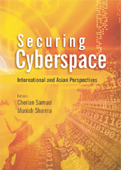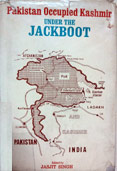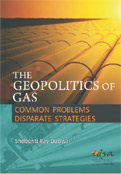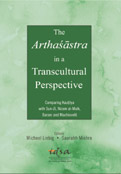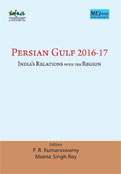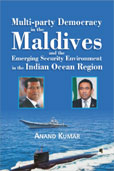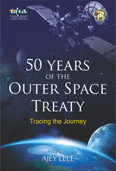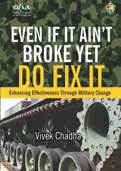E-Book
Securing Cyberspace: International and Asian Perspectives
- Publisher: Pentagon Press
This edited volume contains the papers presented at the 18th Asian Security Conference at the Institute for Defence Studies and Analyses held in February 2016. The authors, drawn from government, law enforcement, diplomacy, private sector, armed forces and academia, examine a range of issues central to cybersecurity. The chapters in this volume not only provide an outline of the journey so far, but more importantly, give indicators of future trends in cybersecurity from the vantage point of the respective experts.
Contributions from Asia are particularly highlighted to promote and provoke greater discussion on perspective from within the region on cybersecurity issues.
- ISBN 978-81-8274-918-4,
- Price: ₹ 1295
- E-copy available
Pakistan Occupied Kashmir: Under the Jackboot
Publisher: Genesis Publications
ISBN: 81-7020-680-4
Pakistan Occupied Kashmir (POK), which is the territory which Pakistan had acquired through aggression way back in 1947, remains as a no-man's-land which the world community seems to have forgotten. Comprising of nearly one-third of the original sovereign state of Jammu and Kashmir, it represents one of the biggest human tragedies of the contemporary political map of the world.
E-Copy available
The Geopolitics of Gas: Common Problems, Disparate Strategies
- Publisher: Pentagon Press
This volume looks at the evolving gas market and the various players who influence it -- both as producers and consumers. However, some of the players, such as Australia and the new African producers, as well as Japan and South Korea, the two largest LNG consumers, have not been included as their approach tends to be more commercial than geopolitical in nature.
- ISBN 978-81-8274-900-9,
- Price: ₹ 995
- E-copy available
Strategic Himalayas: Republican Nepal and External Powers
- Publisher: Pentagon Press
The ten years of Maoist insurgency followed by the political vacuum after the abolition of the monarchy and the delay in the drafting of the Constitution has given credence to the role of external powers in shaping the domestic politics in that country. The book examines the nature of external powers’ role during the political transition in Nepal since 2006. It analyses Nepal’s relations with external powers’ in the framework of ‘small and major powers’.
- ISBN 978-81-8274-761-6,
- Price: ₹ 995
- E-copy available
The Arthasastra in a Transcultural Perspective: Comparing Kautilya with Sun-Zi, Nizam al-Mulk, Barani and Machiavelli
- Publisher: Pentagon Press
This book is the product of a collaborative effort by the Institute for Defence Studies and Analyses, New Delhi; South Asia Institute, Heidelberg University; and Institute of South Asian Studies, National University Singapore. The volume contains papers exploring Kautilya’s Arthasastra in a transcultural perspective, comparing it with the thoughts of Sun-Zi, Nizam al-Mulk, Barani and Machiavelli.
- ISBN 978-81-8274-938-2
- Price: ?. 995
- E-copy available
Persian Gulf 2016-17: India’s Relations with the Region
- Publisher: Pentagon Press
The Persian Gulf-2016-17 is fifth in the series published by MEI @ ND and first in collaboration with the IDSA. It Examines India’s bilateral relations with the region and focusses on developments during 2015 and 2016. It gives a comprehensive account of the strategic, political, economic and cultural aspects of bilateral developments and also provides in depth analysis of internal dynamics of the Persian Gulf countries.
- ISBN: 978-93-86618-19-1,
- Price: ? 1295
- E-copy available
Riverine Neighbourhood: Hydro-politics in South Asia
- Publisher: Pentagon Press
Rivers are the most visible form of fresh water. Rivers are ancient and older than civilizations a ‘mini cosmos’ spawning history, tales, spirituality, and technological incursions. Flowing rivers are the largest renewable water resource as well as a crucible for both humans and aquatic ecosystem.
- ISBN 978-81-8274-914-6,
- Price: ₹ 895
- E-copy available
Fifty Years of the Outer Space Treaty: Tracing the Journey
- Publisher: Pentagon Press
Developments in the outer space arena post the erstwhile USSR launching the first man-made satellite Sputnik in space on 4 October 1957 have transformed the world significantly. In order to ensure the exploration and use of outer space for peaceful purposes, the Committee on the Peaceful Uses of Outer Space (COPUOS) was set up by the United Nations General Assembly in 1959.
- ISBN 978-81-8274-948-1,
- Price: ?. 995
- E-copy available
Even If It Ain’t Broke Yet, Do Fix It: Enhancing Effectiveness Through Military Change
- Publisher: Pentagon Press
Bringing about change in any setup, especially major shifts, is a challenges. This challenges is accentuated further in a strictly hierarchical organisation like the army, presenting an unenviable contradiction to both senior military practitioner and the governing elite, wherein, change is inevitable, yet, it is most likely to be resisted.
- ISBN 978-81-8274-919-1,
- Price: ₹ 795
- E-copy available


